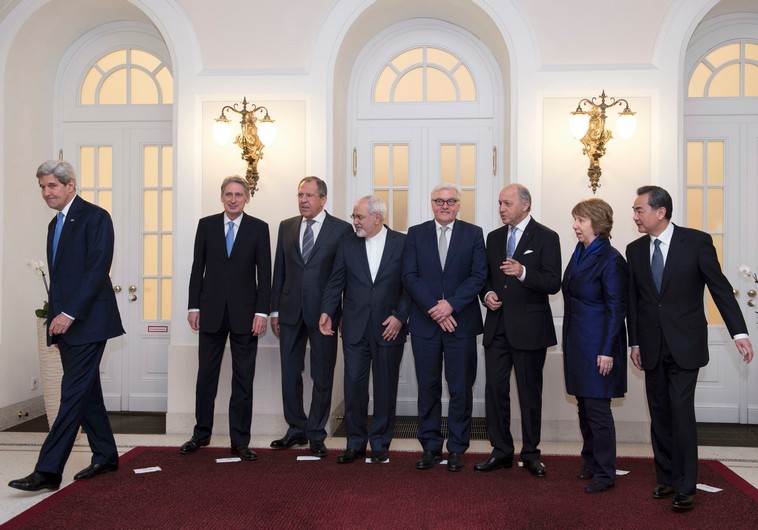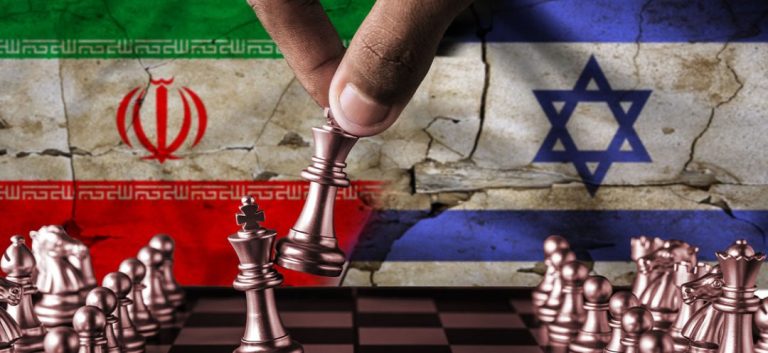West has upper hand in Iran talks, Israeli officials believe, but bad deal remains major threat
By YAAKOV LAPPIN \ 11/29/2014/J.Post
The West has the definitive upper hand in talks with Iran over restricting its nuclear program, Israeli officials told The Jerusalem Post on Thursday, but it remains unclear how the next seven months of fateful talks will unfold.
The officials indicated that a bad deal would spell very bad news for both regional and global security.
“Throughout the current talks, we believed there would either be an extension, or a bad deal. Now that talks have been extended once again, and the only sanctions that have been eased are $700 million of oil money [per month paid to Iran], the question is: What will happen in the coming period?” an official asked.
He stressed that from Israel’s perspective, talks between Tehran and the P5+1 world powers should not only be about whether Iran can operate 9,000 or 4,000 uranium enrichment centrifuges. Rather, other critical issues that need to be addressed include the Islamic Republic’s global terrorist infrastructure, and its missile program, he said.
“It’s not only about the centrifuges,” the official argued.
“Iran came to these talks on its knees [due to biting economic sanctions]. The West has the upper hand; the West is the strong party here, not Iran. The West must not relent,” he added.
A bad deal would entail the gradual lifting of sanctions on Iran, while it continues on its path toward nuclear breakout capability – and that, the official indicated, would be a woeful result.
Dr. Emily Landau, who heads the Arms Control and Regional Security Program at the Institute for National Security Studies (INSS), told the Post this week that from Israel’s perspective, an extension is better than “what seemed to be the only other possible option at this stage, namely a concluded deal.”
“The sense was that if a deal were to be concluded, it would almost certainly be a bad deal,” she continued, citing the current distance in positions between the sides.
“For the sides to get close enough for a deal, serious concessions would have to be made, and on the basis of what we’ve witnessed over the past weeks and months, the only side making offers of concessions is unfortunately the P5+1,” Landau said.
“Therefore, closing the gaps would mean conceding to Iran’s defiant positions – in other words: a bad deal.”
Landau argued that an extension, with at least the hope of accumulating more pressure on Iran to meet the demands of the international community, “is better than a done bad deal. A bad deal would not only, of course, leave Iran at dangerous threshold status, but the negative implication would be compounded by the fact that the international negotiators have granted legitimacy to this bad outcome.”
Iran, for its part, has realized that P5+1 leverage is eroding, as evidenced by the world powers’ offers of concessions, said the arms control expert.
This has led Iran to conclude that “there is no reason for them not to wait for more concessions, a better deal from their point of view. While Iran is suffering from sanctions, it is also getting economic relief every month. Moreover, its stockpile of low enriched uranium is intact, and it is working on important aspects of a military nuclear capability: research and development into advanced centrifuges; its ballistic missile program; and possibly, continued covert weaponization activities.
“What is clear is that Iran is continuing to stonewall the International Atomic Energy Agency on weaponization questions, and not paying any price for doing so.”
Only additional, significant pressure brought to bear on Iran could bolster the P5+1’s leverage and achieve a better deal, she said. “But if not – and if the P5+1 continues making concessions – they will be paving the road to a bad deal.”
While no one has said so explicitly of late, a bad deal from Israel’s perspective would likely seriously increase the chances of an eventual Israeli military strike on Iran’s nuclear program.
An Iranian attempt to cross Israel’s red lines on nuclear progress, under the cover of international legitimacy, could trigger an attack. So far, Israel’s red lines have yet to be crossed, and Israel has yet to attack.
Maj.-Gen. (res.) Amos Yadlin, former Military Intelligence chief and director of the INSS, called on Israel to “take proper advantage of the third extension of the interim agreement to prepare and enhance all its options regarding the Iranian nuclear threat.”
In an analysis he published this week, Yadlin said, “Many doubt whether Iran and the Western powers will ever be able to achieve an agreement. Extension of the negotiations with Iran on a nuclear agreement gives Israel a seven-month period in which it does not have to make fateful decisions on the matter. On July 1, 2015, however, if a “bad agreement” is signed or if the talks collapse, Israel will face a strategic situation that will demand difficult decisions.
Both of these scenarios will require Israel to reformulate its strategy for stopping the Iranian nuclear program.”
Yadlin noted that the Iranian nuclear program is currently three to six months away from a bomb. Any reasonable deal would have to substantially roll Iran back from the brink, he maintained.
Spelling out the likely offer Iran will receive from the P5+1, Yadlin envisaged a proposal that would push Iran away from the bomb by a year.
This involves leaving “3,000-4,000 centrifuges in Iran and a stock of enriched uranium lower than the minimum required for a single nuclear bomb. In the framework of the rollback, conversion of the enrichment facility in Fordow to a research and development center, and changing the parameters and structure of the reactor in Arak from a heavy water reactor to a low-capacity light water reactor, is required.
“For its part, Iran has refused to reduce the number of centrifuges, and insists on keeping Fordow as an enrichment facility,” he said.
Iran seeks an agreement that would be valid for only two years, after which it would “be recognized as a country entitled to maintain a widespread nuclear infrastructure, like Germany or Japan, and putting it only a few weeks away from a bomb,” Yadlin said. However, the world powers want the agreement to be valid for at least 15 years.
As the P5+1 and Tehran continue to battle it out in the diplomatic arena, Israel must continue working with the US administration to transmit its position and prepare for all scenarios, the former Military Intelligence chief said.




















